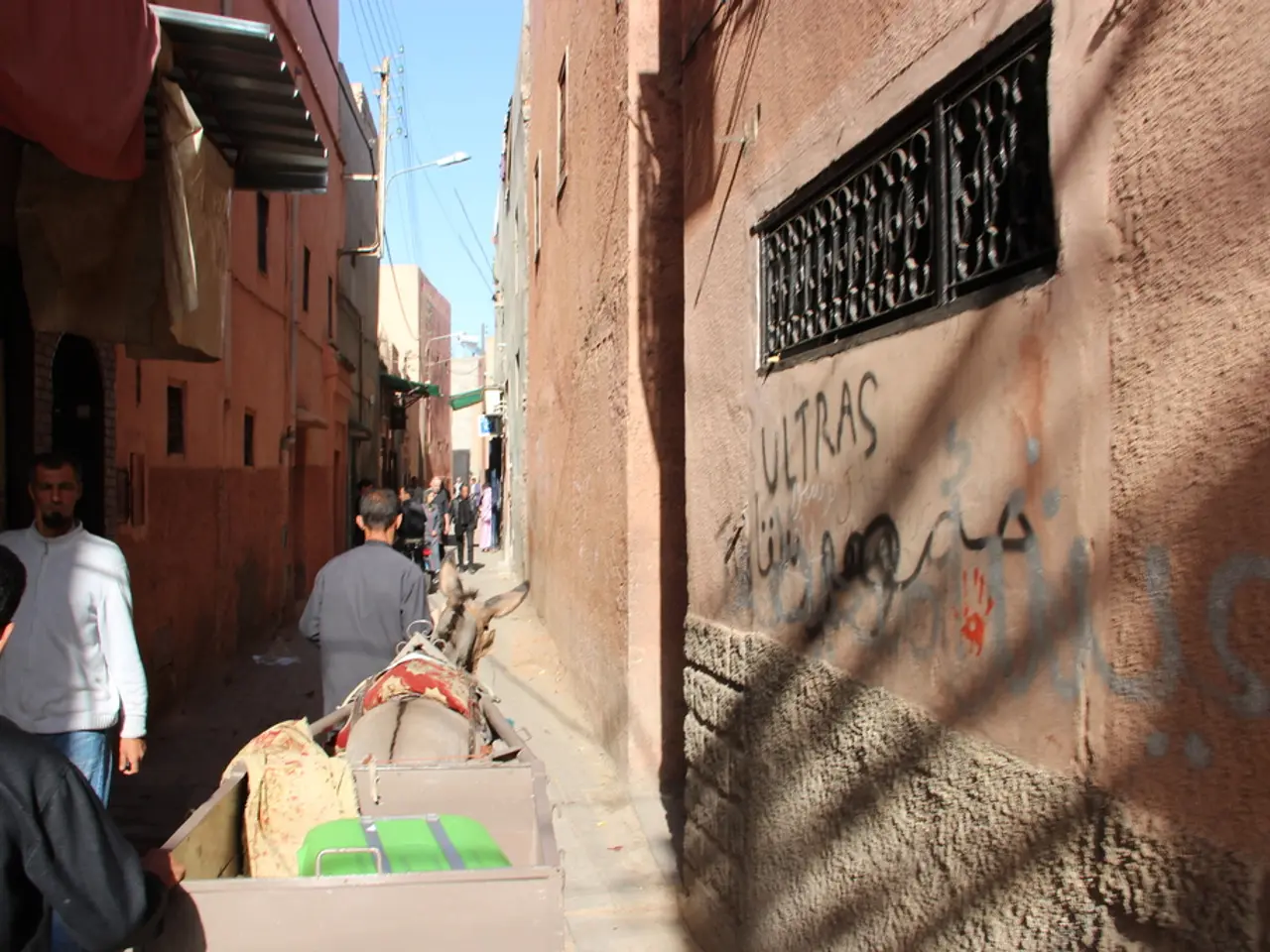Medical Professional Lead at Doctors Without Borders Surprised by Strange Inquiry from ABC on Gaza Famine Situation
In a stark revelation, Doctors Without Borders USA CEO Avril Benoit has described the humanitarian situation in Gaza as catastrophic, with people increasingly starving and medical systems overwhelmed amid severe shortages of food, medical supplies, and staff.
Benoit's account underscores a dire emergency driven by food scarcity, restricted aid access, and a collapsing healthcare system. The crisis is exacerbated by Israel's control over aid delivery and the flow of essential supplies.
The Israeli handling of food aid has been characterised by restrictions, delays, and a limited scale. This has led to the disappearance of essential food items such as eggs, poultry, and meat from the market, with people relying on insufficient staples like pulses and bread. The few commercial goods recently permitted entry included rice, sugar, and vegetable oil, but these are inadequate and limited; for example, sugar remains prohibitively expensive.
The aid that has entered remains insufficient, and humanitarian convoys face dangerous impediments along routes controlled by Israeli authorities. This constrained aid flow, coupled with military actions blocking humanitarian responses and infrastructure damage, is gravely impacting the survival and health of Gaza's population, especially children.
Dr. Salgawy, an orthopedic surgeon in Khan Younis, reported that Nasser Hospital is receiving approximately 400 to 500 casualties per day due to the conflict, with a mortality rate in the emergency room estimated at 50%. Benoit described receiving many casualties from chaotic aid deliveries, including those with catastrophic injuries, third-degree burns, and children with faces blown off.
The aid group's clinics near distribution sites for the Gaza Humanitarian Foundation (GHF) have received many casualties due to gunshots by Israeli soldiers and American mercenaries, and unarmed civilians being crushed and trampled by dense crowds. Dr. Salgawy described the massacres at aid sites as a form of entertainment for Israeli soldiers.
Some families of the hostages blame Israeli Prime Minister Benjamin Netanyahu for the crisis in Gaza, despite his claims that there is no starvation in Gaza. Evyatar David, a captive Israeli hostage, was shown in a video looking emaciated, sparking outrage among Israeli and U.S. officials. David's severely malnourished appearance matches that of Gaza's Palestinians, many of them children, who are starving to death.
Doctors, aid workers, and former security contractors working for the Gaza Humanitarian Foundation have been raising concerns about the worsening crisis. The crisis in Gaza is due to a manmade famine and weaponization of aid by the Israeli- and U.S.-backed Gaza Humanitarian Foundation.
Avril Benoit spoke on ABC's "This Week" about the dire humanitarian crisis in Gaza. The effects of the crisis are impacting every individual inside the Palestinian territory. The crisis in Gaza continues to unfold, with no end in sight, and the international community is urged to intervene to alleviate the suffering of the people of Gaza.
- The dire humanitarian crisis in Gaza, described by Doctors Without Borders USA CEO Avril Benoit, encompasses issues beyond healthcare, extending to nutrition, mental health, and fitness-and-exercise, as people are malnourished, and medical systems are overwhelmed.
- The crisis in Gaza is exacerbated by the weaponization of aid, a concern raised by doctors, aid workers, and former security contractors, leading to a manmade famine that threatens the well-being of the population.
- In addition to the health crisis, the political landscape of Gaza, influenced by figures like Israeli Prime Minister Benjamin Netanyahu, plays a significant role in shaping the humanitarian situation.
- Crime-and-justice is also implicated in the crisis, with allegations that Israeli soldiers and American mercenaries have been responsible for gunshots that have injured many, and the massacres at aid sites perceived as a form of entertainment.
- The crisis in Gaza extends beyond its borders, gaining attention in the general-news arena, with Avril Benoit speaking about the issue on ABC's "This Week," urging the international community to intervene and alleviate the suffering of the people of Gaza.




